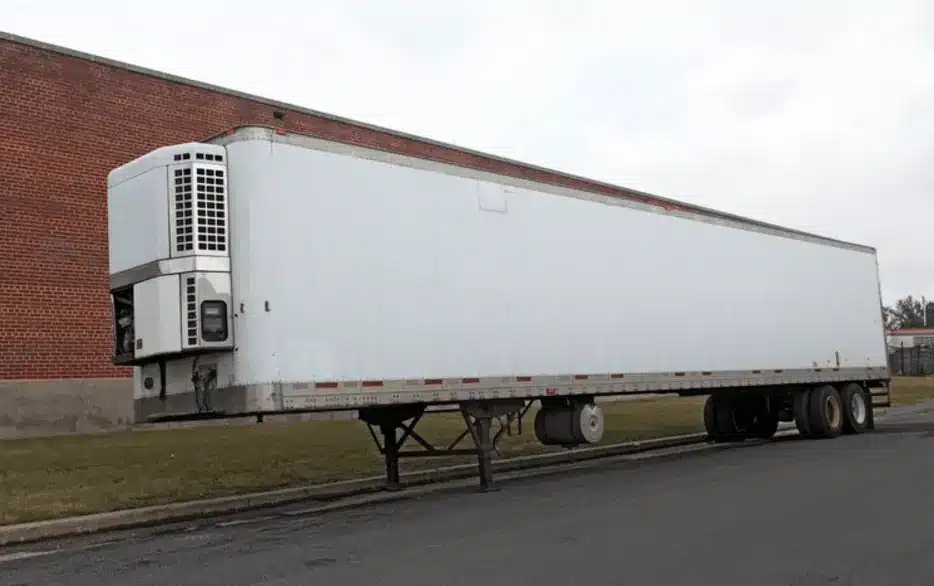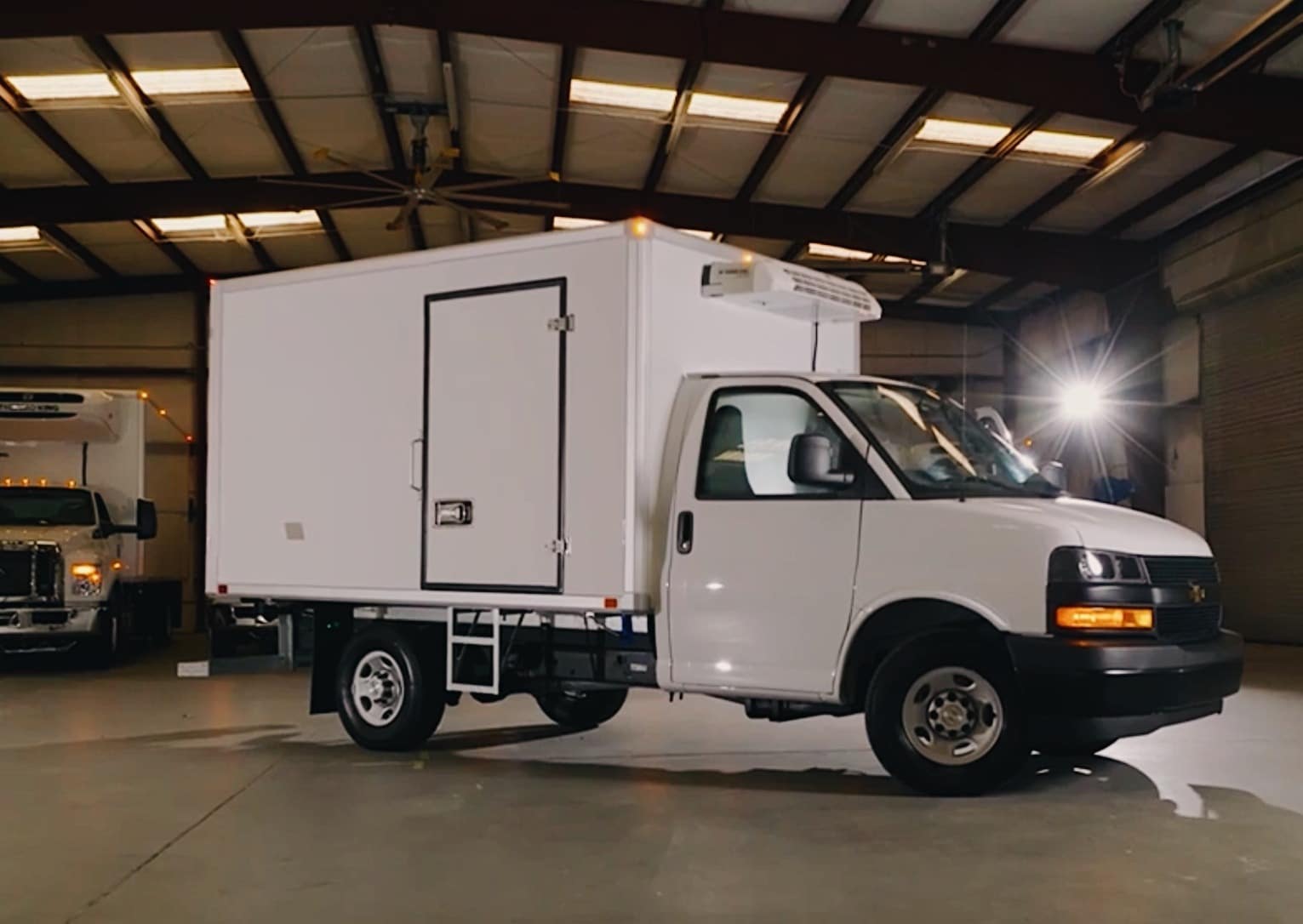Thermo King Transport Refrigeration: Reputable Solutions for Cold Chain
Thermo King Transport Refrigeration: Reputable Solutions for Cold Chain
Blog Article
Top Developments in Transportation Refrigeration: Enhancing Performance and Security
The landscape of transportation refrigeration is undergoing substantial transformation, driven by advancements intended at improving both performance and safety. As these innovations continue to evolve, it is important to discover their ramifications on functional methods and regulatory conformity, prompting a more detailed examination of exactly how they improve the future of transport refrigeration.
Smart Temperature Keeping An Eye On Systems
In the realm of transportation refrigeration, wise temperature level tracking systems have arised as an essential advancement for making certain the stability of temperature-sensitive items. These advanced systems leverage Web of Things (IoT) modern technology to give real-time information on temperature variations, enabling drivers to maintain optimum problems throughout the supply chain. By continually tracking the temperature level of refrigerated containers and automobiles, business can quickly identify discrepancies that may endanger item quality.

In addition, smart monitoring systems usually integrate automated alerts and notifications, enabling stakeholders to react promptly to any kind of potential issues. This aggressive approach not just minimizes the danger of putridity but also boosts compliance with regulative criteria regulating food security and pharmaceutical transportation.
The integration of information analytics within these systems additionally promotes anticipating upkeep, helping operators to foresee prospective tools failings prior to they occur. This capability minimizes downtime and maximizes operational effectiveness, inevitably causing set you back savings.
Eco-Friendly Refrigerants
Smart temperature level monitoring systems play an important function in keeping product high quality, but the effectiveness of transportation refrigeration likewise depends upon the option of refrigerants used. As ecological problems rise, the shift towards environmentally friendly refrigerants has ended up being imperative. Typical cooling agents, such as hydrofluorocarbons (HFCs), are notorious for their high International Warming Prospective (GWP), adding dramatically to environment change. On the other hand, arising alternatives like hydrocarbon-based refrigerants and hydrofluoroolefins (HFOs) existing lower GWP alternatives, using both performance and sustainability.
These environmentally friendly cooling agents not just decrease environmental impact yet likewise line up with international laws focused on eliminating harmful substances. Their fostering can result in enhanced energy effectiveness, inevitably lowering operating prices for transportation refrigeration systems. The use of all-natural refrigerants, such as ammonia and carbon dioxide, has actually gained grip due to their excellent thermodynamic residential properties and reduced environmental footprint.
Spending in green refrigerants is not just a governing conformity procedure; it represents a strategic decision that enhances brand online reputation and promotes customer loyalty. refrigerated transportation thermo king. By prioritizing sustainable techniques, companies can contribute to a greener future while ensuring the honesty of carried goods
Advanced Insulation Products
Making use of advanced insulation products is essential for optimizing transport refrigeration systems, as they dramatically enhance energy efficiency and keep consistent temperature control. Traditional insulation approaches usually fall brief in avoiding thermal transfer, leading to boosted energy consumption and changing temperatures within chilled compartments.
Arising products such as vacuum cleaner protected panels (VIPs) and aerogels offer remarkable thermal resistance, permitting thinner profiles without compromising performance. VIPs, for example, utilize a vacuum layer to minimize conductive and convective warmth transfer, making them ideal for space-constrained applications. Aerogels, understood for their light-weight and porous structure, supply phenomenal insulation while substantially decreasing overall system weight.
Furthermore, incorporating stage change materials (PCMs) right into insulation systems can further maintain temperature levels during transportation. These products soak up and release thermal power, successfully buffering versus outside temperature variants.
The combination of these innovative insulation products not just reduces the functional costs related to energy usage yet also prolongs the service life of temperature-sensitive items. As the transport refrigeration sector remains to develop, the fostering of innovative insulation technologies will certainly be pivotal in boosting both performance and security in chilled transportation.
Automated Path Optimization
The performance of transport refrigeration systems is greatly boosted through automated course optimization, which leverages real-time data and advanced algorithms to determine the most effective paths for delivery. By evaluating different factors such as website traffic patterns, weather problems, and shipment home windows, these systems can substantially lower traveling time and fuel consumption.
Automated course optimization lessens human mistake and subjective decision-making, which can result in ineffectiveness. This modern technology makes it possible for fleet supervisors to allot resources much more properly, making certain that chilled items preserve their called for temperature throughout the journey. By maximizing courses, business can additionally improve client satisfaction through prompt deliveries.
Moreover, automated systems can adjust to unexpected scenarios, such as road closures or sudden traffic spikes, enabling vibrant rerouting. This adaptability not only secures the integrity of temperature-sensitive products but also adds to general operational efficiency.
Implementing automated path optimization can cause significant price savings while lowering the carbon impact connected with transport. As organizations increasingly prioritize sustainability, this development stands apart as an important element in contemporary transportation refrigeration, aligning functional objectives with ecological obligation. Ultimately, automated course optimization stands for a significant development in the pursuit for effectiveness and Get More Information security in transportation refrigeration.

Real-Time Information Analytics
Automated route optimization substantially advantages from the integration of real-time data analytics, which offers critical understandings right into the performance of transport refrigeration systems. By using real-time information, transport drivers can keep track of temperature level variations and devices performance, guaranteeing that subject to spoiling goods are preserved within required specifications throughout transit. This positive method not just enhances the quality of the transported products go right here but additionally reduces the threat of spoilage and loss.

In enhancement to boosting effectiveness, real-time analytics improves safety and security by ensuring conformity with regulative requirements for temperature level control. This not just safeguards public health however likewise fortifies a company's reputation - thermo king truck refrigeration units. As the transport refrigeration industry develops, the assimilation of real-time information analytics becomes a keystone for driving advancement, sustainability, and operational excellence
Final Thought
To conclude, the advancements in transportation refrigeration considerably improve both performance and security within the industry. Smart temperature level surveillance systems and real-time data analytics give critical oversight, while environmentally friendly cooling agents and progressed insulation materials add to sustainability and energy effectiveness. Automated route optimization algorithms not only reduce traveling time however also minimize environmental influence. Jointly, these innovations represent a critical evolution in transport refrigeration, guaranteeing compliance with regulatory requirements and promoting a greener future.
The landscape of transportation refrigeration is undertaking considerable makeover, driven by developments intended at improving both efficiency and security.Smart temperature level surveillance systems play a vital role in keeping product high quality, however the performance of transportation refrigeration also pivots on the selection of cooling agents made use of. Their fostering can lead to enhanced energy efficiency, inevitably minimizing operating expenses for transportation refrigeration systems. Inevitably, automated path optimization stands for a substantial link advancement in the mission for efficiency and safety in transportation refrigeration.
In conclusion, the developments in transport refrigeration substantially boost both effectiveness and security within the industry.
Report this page